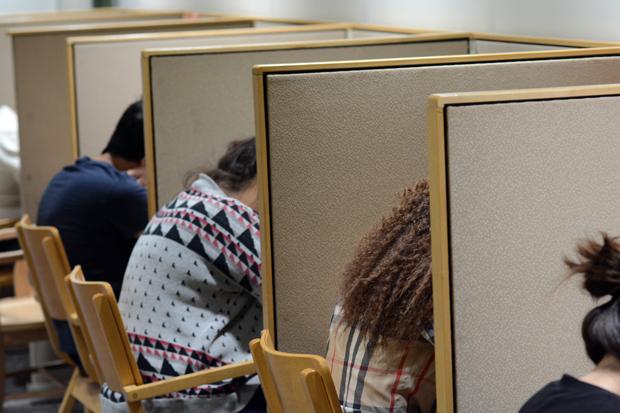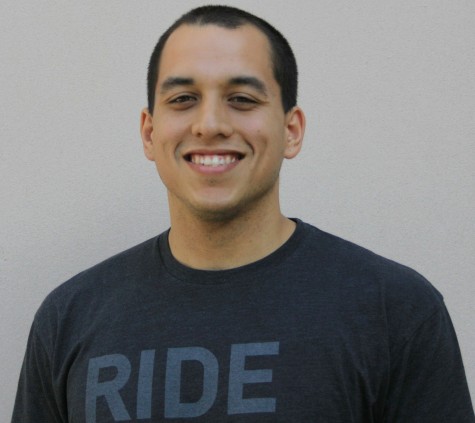Libraries are the cornerstones of many academic institutions. Until recently, collections of books and their wealth of information were the main resources for students.
However, within the last two decades, the advent of the Internet has changed everything. Books are no longer the only source for academic information, and an even larger body of information now lies online.
The shift in how students access information has caused Glendale Community College’s library to change its focus from storing information, to facilitating learning in general. They are exploring ways are finding out how they can realistically meet the needs of students in a technology driven culture.
Library consultant Will Baty is helping GCC figure out how to renovate its library with the help of its students, faculty, and administrators. Baty has more than 30 years of experience as a reference librarian and has been consulting for over 20 years. He is holding meetings on campus to help determine how the library can better serve students now, and in the future.
Experts agree that student input is a big factor in the renovation, because students will be the ones using the library most.
Instructional Librarian Nancy Getty said “We can’t do it right without student input.”
The Apple Computer Company told Brett Miketta they would not help build a program around student resources without considerable involvement from the students themselves.
Miketta is an assistant professor in the computer science department at GCC, who is researching technological options for the college as a whole.
At a recent meeting faculty members and students discussed ideas for the renovation like more study rooms, study space, and computers.
“Students need a physical space to collaborate and access information,” said Baty.
While the large wooden carrels that house the computers in the library offer privacy, many students believe that they only help people to hide away while playing games and watching movies. Taking these carrels out would create more open space for students to work together, unhindered by the wooden dividers.
Tyler Cucinotta, a nursing student at GCC, offered his input about new designs at the meeting.
“Open computer spaces make me feel more accountable for the work I am supposed to be doing,”said Cucinotta.
On the bottom level of the library, new moveable furniture would allow for a flexible and open collaborative space for students. This would leave the upper level for quiet, contemplative workspace, which could still include smaller corrals.
Though most of the information in the library is contained in computer databases and e-book collections, there is still going to be a physical book collection. Most journals and publications can be found in online databases, but there may still be physical copies of some of these as well.
Librarians are consolidating the current collection, getting rid of outdated and unused reference books. This will make more space available for computer tables or maybe even comfortable furniture.
Amidst the positive feedback over the renovation, some faculty members voiced concerns about the project’s longevity. The library has already been remodeled once (in the late 1990s) since it was built in the 1960s. Some faculty members feel it is important to be sure that any new renovations are flexible and lasting.
A new cafe portion to the library could serve tea, coffee, and some small food items. Susie Chin, an instructional and reference librarian at GCC, said this would be a nice place for students and faculty to connect outside of the classroom.
The topic of a café with food led to talk over changing the food restrictions inside the library. Some faculty members were concerned about odorous foods, replaceable carpets, and food allergies.
Another issue that was identified at the meeting was office space within the library. Other departments on campus have offices inside the library, and between the space being made by renovations and the labs and resources to be added, there may be reorganization.
The new College Lab/Services building, scheduled for completion by the end of 2015, further complicates this, but as long as services are not duplicated on different parts of campus, attention will not be detracted from the library.
The library’s public services manager, Russell Beckett, said he would like to see the library become the “central hub” for students on campus—“a place where students automatically go.” said Beckett.
Some faculty members say that not all of their ideas about what students want and need are always right. This is why they are pleased to see students getting involved in the process and adding their perspective, something that is crucial to the process.
A student focus group will be held on campus Thursday from noon to 1:30 p.m. in the library. The focus groups will be a chance for large groups of students to collaborate with Baty and generate ideas.
Any students interested in attending can contact Nancy Getty by email at [email protected], or by phone at (818)240-1000, ext. 5795.
Baty is creating an overall report and a plan for renovations that is due by the end of July. The school must then find an architect and contractor to put the plans into effect. Baty may assist GCC as a liaison at that time. The whole process has no deadline and could take anywhere from two to three years.


